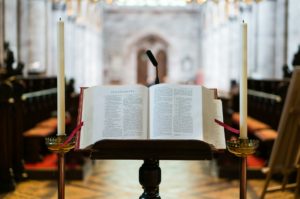
It’s always fascinating to hear people express their religious views. Flying from Orlando to Chicago today, I have had a delightful conversation with the fellow beside me about his faith. He mentioned that he is “Catholic,” but that he appreciates his friends who are Protestant. Then, by his own initiative, he explained what Catholicism means to him. This is where it became fascinating. In short, he expressed disagreement with the Papacy, particularly what he considers to be an ultraconservative agenda. “Such an agenda fails to see that women should be priests,” he said with a healthy measure of zeal. Then with some emotive momentum he asserted, “History makes the case abundantly clear.” However, the look in his eye betrayed that he was unable to furnish any historical evidence for his argument.
After listening to my new friend explain the various ways that he disagrees with the Catholic Church, I couldn’t help but ask him, “Why don’t you become a Protestant?” It was a cheeky question, but I couldn’t resist (and he asked for it). His answer was simple and clear: “Because I am Catholic.”
There are probably numerous insights that we can glean from this answer, but since my ears are on the verge of imploding from the pressure of this final descent to the runway, I’ll keep it brief. I think that my friend’s answer underscores the importance of understanding the social dimensions of religious dialogue. In other words, we can’t expect everyone to understand the finer points of doctrine (or the basic points in many cases). Yes, this is a travesty (insofar as our thoughts about God are the most important thoughts that we think); but it is reality. In the meantime we must ask questions that promote reflection on the part of the one with whom we’re speaking. My prayer for my new friend is that he will go home thinking about his remarks and consider their nature and significance, for what does it profit a man if he has all manner of opinion but none of them correlate to reality?




